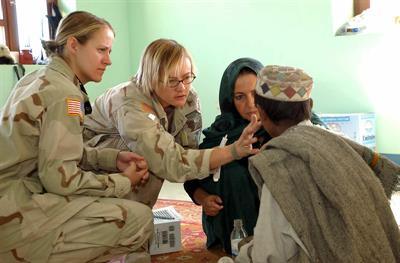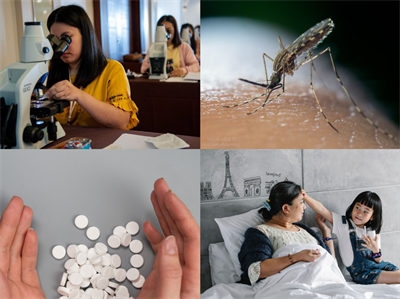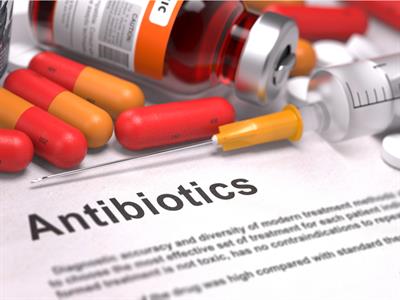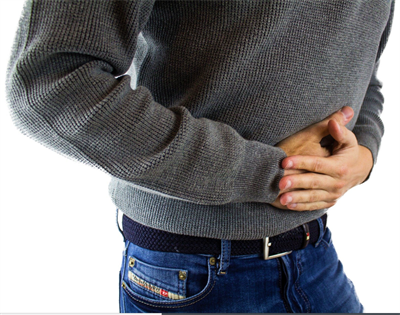
PUMPA - SMART LEARNING
எங்கள் ஆசிரியர்களுடன் 1-ஆன்-1 ஆலோசனை நேரத்தைப் பெறுங்கள். டாப்பர் ஆவதற்கு நாங்கள் பயிற்சி அளிப்போம்
Book Free Demo3. Antipyretics:
Antipyretics are the substances used to reduce fever (lowering the body temperature to normal).

Body temperature (fever) checking
- They are taken orally as tablets and capsules.
- The most common antipyretics are Aspirin, Antipyrine, Phenacetin, and Paracetamol.
Antiseptic is a compound that prevents infections made by disease-causing microorganisms or pathogens. Antiseptics either kill the organism or stop its growth.

Antiseptic applying
- Antiseptics are used externally to cleanse wounds and internally to treat infections of the intestine and bladder.
- Iodoform (CHI_3) is used as an antiseptic, and its 1% solution is a disinfectant.
- 0.2% of phenol solution acts as an antiseptic, and its 1% solution is a disinfectant.
- Hydrogen peroxide is a minor antiseptic mainly used for cleansing wounds.
Malaria is a vector-borne disease that causes shivering and fever. It increases the body temperature to 103-106°F. It induces physical weakness with the side-effects on the liver and also produces anaemia.

Malaria identification and its drugs
- Extracts of roots and stems of some plants are extensively used as antimalarial.
- Quinine is a natural antimalarial collected from Cinchona bark.
- The last antimalarial drug was discovered in 1961 is pyrimethamine.
- However, quinine, primaquine and chloroquine are some of the best antimalarials.
- Chloroquine is used primarily to control malarial parasites such as plasmodium ovale, plasmodium vivax etc. It is not used in curing the disease.
- Instead, it is used as an additive with other antimalarial drugs.
6. Antibiotics:
Many microorganisms (bacteria, fungi and moulds) produce certain chemicals that inhibit the growth or metabolism of other disease-causing organisms. Such chemical substances are known as antibiotics-these need to be existing only in low concentrations to be effective in their antibiotic action.

Antibiotic drugs
The first antibiotic ‘penicillin’ was discovered by Alexander Fleming in 1929 from the mould Penicillium notatum. Penicillin is widely used for rheumatic fever, narrowing of the heart wall, bronchitis, pneumonia, etc.
There are three primary sources of antibiotics:
(i). Bacteria,
(ii). Fungi and
(iii). Actinomycetes.
(i). Bacteria,
(ii). Fungi and
(iii). Actinomycetes.
The novel antibiotics, like a lot of today’s antibiotics, are obtained from natural sources. Some plant extracts, essential oils, and even foods have antibiotic characteristics.
Example:
Honey, garlic, ginger, clove, neem and turmeric.
After eating spicy oily food, one may feel uncomfortable due to some burning sensation in the stomach/food pipe. This burning is due to an imbalance in the acidity in the stomach. Particular drug formulations give relief from such burning sensations. These are called antacids.

Stomach burning sensation
Antacids are obtainable in tablet and gel/syrup forms. These antacids carry magnesium and aluminium hydroxides, in addition to flavouring agents and colour.